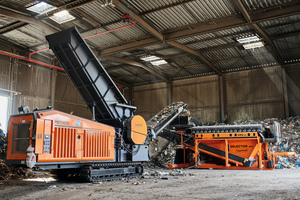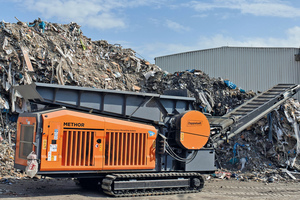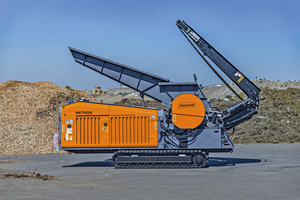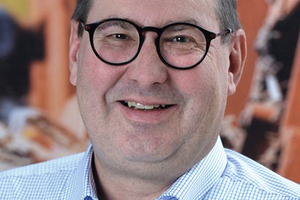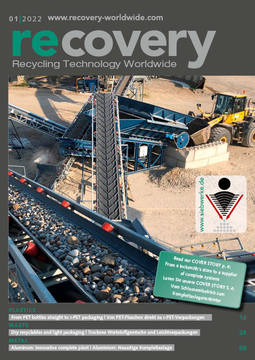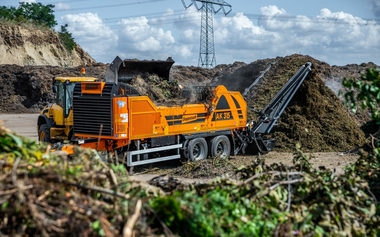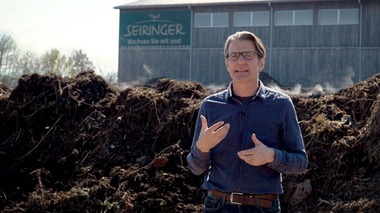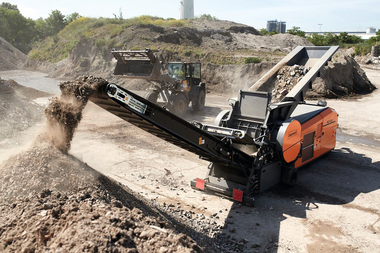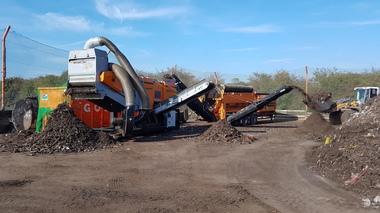Biowaste Ordinance Amendment: New Doppstadt Solution Ensures Compliance with Requirements
The Amendment to the Biowaste Ordinance (BioAbfV) meets with a lot of criticism among experts and associations because they think the requirements are technically unfeasible. Furthermore they fear an increase in biowaste incineration and a reduced marketability of compost. Doppstadt Umwelttechnik GmbH has recently developed a mobile-modular processing concept, which at the time of entry into force of the BioAbfV amendment, will increase the plant operators’ legal certainty, reduce the disposal costs thanks to a considerable reduction of the screen oversize and increase the quantity of applicable, contaminant-free compost.
Due to the smart combination of individual machines, the operators benefit from higher plant operating efficiency and a quick return on investment (ROI). The adherence to the required limit of less than 0.5 per cent of foreign material in the biowaste before the first biological treatment is indeed possible depending on the overall conditions. Doppstadt has already sold the first mobile-modular processing concepts to a big biowaste processing enterprise – including follow-up order.
“Our mobile-modular plant concept can already provide solutions today to future legislative requirements. It combines legal certainty with economic benefits, flexibility and risk minimization. Therefore, the Amendment to the Biowaste Ordinance is not a handicap, but a chance for plant operators,“ says Michael Zeppenfeldt, Head of Sales Germany at Doppstadt Umwelttechnik GmbH. The Doppstadt plant concept is based on a combination of mobile machines, which are suited for various applications. They do not take up too much space and need not necessarily be operated in a hall. In case of legal changes in the future, the users can react flexibly and reliably: either by replacing, extending and/or rearranging the plant or by selling individual machines in the market.
An exemplary system configuration for contaminant elimination in the field of biowaste is composed of only one mobile Doppstadt machine with three to four additional mobile units. Thanks to the modularity of the system, the processing concept can be rearranged or extended quickly and flexibly according to the input quantity and material. The investment costs of such a system amount to much less than 800 000 Euro. In connection with the increase in efficiency and the disposal cost savings, the ROI for a mobile-modular Doppstadt solution can be around two or two and a half years. Furthermore, plant operators profit from a substantial reduction of administrative effort in the approval procedure (compared to stationary plants) and they are independent of target prices and quotas of external plants.
Substantial Disposal Cost Savings
„An upstream separation can remove the contaminants more specifically without removing the valuable, recyclable biowaste at the same time. In this way, plant operators save a lot of recycling costs“, says Zeppenfeldt. By means of the upstream separation with mobile-modular plants, it is possible to reduce the oversize fraction to be disposed of by appr. 60 - 70 per cent – regardless of what the legislation requires and in what form. In various plant tests, Doppstadt could achieve a contaminant elimination reaching the limit value of 0,5 weight per cent.
„It is undeniable that the Amendment to the Biowaste Ordinance (BioAbfV) will have a lasting impact on the technology to be used – plant operators will have to invest. But the upstream contaminant removal is not only technically feasible with our mobile-modular plant concepts, but it will yield a return very soon“, Zeppenfeldt underlines.
www.doppstadt.de
Doppstadt machine videos:
https://www.youtube.com/watch?v=-7RM2QL4iYg&t=261s

